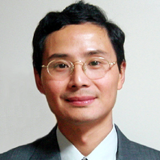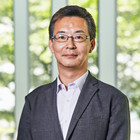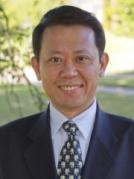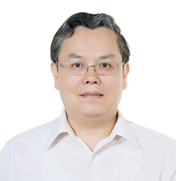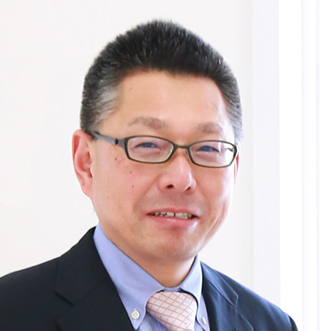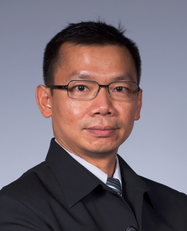
ICNB 2020 Speakers are as below:
Prof. Shu Yin
Tohoku University, Japan
Dr. Shu YIN, He received a B. S. degree in inorganic chemical engineering from the Dalian University of Technology in 1987. He received a M. S. degree in chemical metallurgy from the Institute of Chemical Metallurgy (ICM, latterly Institute of Process and Engineering, IPE), Chinese Academy of Science in 1990, then worked as a research associate for 2 years at ICM. He came to Japan and worked as a research fellow in the Hydrothermal Chemistry Research Laboratory (Prof. N.Yamasaki's Group), Kochi University in 1992, then became a research assistant at the Institute for Chemical Reaction Science (ICRS, Prof.T.Sato's group), Tohoku University during 1995-1997. He received a Ph.D. degree in applied chemistry from Tohoku University (research period shortened) in 1999. He has been a full-time research assistant at the ICRS in 1999, then a lecture and associate professor at the Institute of Multidisciplinary Research for Advanced Materials (IMRAM), Tohoku University in 2005, and then a full-time professor in 2016. He is also an affiliate professor of eight Chinese Universities / Institute(Lanzhou University; Dalian University of Technology; Guangxi Research Institute of Chemical Industry, Huaqiao University, Taiyuan University of Technology, Sichuan University, Beijing University of Technology , Beijing University of Science and Technology). His research papers were cited more than 8600 times and showed a citation h-index = 51. He has also participated in the organization of some international conferences and acted as session chair in more than 30 international conferences. Until now, he was invited to act as independent reviewer and referee for more than 40 academic journals. His research interests include morphological control of nanostructured materials, photocatalytic materials, UV-shielding materials, hydrothermal / solvothermal process, soft chemical synthesis. He has authored more than 440 original research papers(IF>4: more than 100 papers), contributed 25 book chapters/ review papers and 22 patents. He has co-authored nearly 300 international conference presentations and presented more than 70 invited talks since 2004.
Prof. Shinji Takeoka
Waseda University, Japan
Shinji Takeoka is a professor of Department of Life Science and Medical Bioscience, School of Advanced Science and Engineering, Waseda University. He received B.S. degree(1986), M.S. degree(1988) , Ph. D. degree(1991) from Waseda University, Japan. He worked as a research associate at Waseda University School of Science and Engineering from 1991. Then he worked as Visiting Fellow, U. Pennsylvania School of Medicine for 1 year from 1998 to 1999. In 2005, he was promoted as professor of Waseda University. Prof. Shinji Takeoka is the Associate Director of Research Promotion Division, Waseda University. He is also the President of The Society of Blood Substitutes, Japan. His research interests include biomedical Engineering, biological material sciences, molecular assembling science and engineering.
Prof. Steven Y. Liang (Fellow of ASME & SME)
Morris M. Bryan, Jr. Professor for Advanced Manufacturing Systems
Georgia Institute of Technology, USA
Steven Y. Liang holds a 1987 Ph.D. in Mechanical Engineering from University of California at Berkeley, USA, and was founding Director of Precision Machining Research Consortium and Director of Manufacturing Education Program and has been Morris M. Bryan, Jr. Professor for Advanced Manufacturing Systems at Georgia Institute of Technology, USA. Dr. Liang served as President of Walsin Lihwa Corp., a publicly-traded manufacturing entity with over USD6 billions of yearly revenue. Dr. Liang's technical interests lie in advanced manufacturing, precision engineering, and materials-centric production, and in these areas he has supervised over 90 post-doctoral studies, Ph.D. dissertations, and M.S. theses and has authored in excess of 450 book chapters, archival journal papers, and professional conference articles. He has delivered more than 60 keynotes and invited seminars at industries, peer institutions, and conferences in over 20 countries on manufacturing science and technology. Dr. Liang served as President of North American Manufacturing Research Institution and Chair of Manufacturing Engineering Division of The American Society of Mechanical Engineers. He is Editor-in-Chief of Journal of Manufacturing and Materials Processing (MDPI) and Editor of International Journal of Precision Engineering and Manufacturing (Springer). Dr. Liang is the recipient of Robert B. Douglas Outstanding Young Manufacturing Engineer Award of SME, Ralph R. Teetor Education Award of SAE, Blackall Machine Tool and Gage Award of ASME, Milton C. Shaw Manufacturing Research Medal of ASME, etc. Dr. Liang is a fellow of both ASME and SME.
Prof. Shen-Ming Chen
National Taipei University of Technology, Taiwan
Prof. Shen-Ming Chen (h-index > 60)
received his PhD degrees in chemistry from National Taiwan University,
Taipei, Taiwan. He was a visiting postdoctoral fellow with the Institute of
Inorganic Chemistry, Friedrich-Alexander University Erlangen-Nuremberg,
Germany in 1997. He joined Department of Chemical Engineering, National
Taipei Institute of Technology, Taipei, Taiwan in 1985. He had been an
associate professor of Department of Chemical Engineering, National Taipei
Institute of Technology, Taipei, Taiwan from 1991 to 1997. Since August
1997, he has been a full professor of Department of Chemical Engineering and
Biotechnology, National Taipei University of Technology. He has been the
Dean (Curator) of library, National Taipei University of Technology, Taiwan
from 2000 to 2006 and the Director of Extracurricular Activity, office of
student affairs, National Taipei University of Technology, Taiwan from 1995
to 2000.
Prof. Shen-Ming Chen has published over 500 research and review papers in
international SCI journals. Some of their papers have been selected as the
most cited papers in the Journal of Electroanalytical Chemistry and
Biosensor & Bioelectronics. He received three times Distinguish Professor
awards. He also received three times Outstanding Research Award from
National Taipei University of Technology, Taiwan. He have edited or attended
two books for NOVA publications titled “Nanostructured Materials for
Electrochemical Biosensors” and “Biosensors: Properties, Materials and
Applications” and contributed four book chapters.
His research interest includes nanocomposites, bionanomaterials,
bionanotechnology, electrochemical biosensor, biosensors,
bioelectrochemistry,, chemical materials, electroanalytical Chemistry,
electrocatalysis and electroanalysis, photoelectrochemistry, metalloproteins,
metalloporphyrins, nanotechnology, spectroscopic techniques, scanning probe
techniques, quartz crystal microbalance, materials research, fuel cells,
solar cell and photovoltaic cells.
Prof. Yasuhiko HAYASHI
Okayama University, Japan
Yasuhiko HAYASHI received the B.E., M.E.
and D.E., degrees in electrical and computer engineering from the Nagoya
Institute of Technology, Nagoya, Japan, in 1990, 1992, and 1999,
respectively. From 1992 to 1996, he was engaged in research on semiconductor
device modeling in Motorola Japan Ltd., Tokyo, Japan. He was appointed a
Research Associate and an Associated Professor in the Department of
Environmental Technology and Urban Planning at Nagoya Institute of
Technology in 1999 and 2007, respectively, and then he was an Associated
Professor in Department of Frontier Materials at Nagoya Institute of
Technology in 2008. He has been a full Professor in Graduate School of
Natural Science and Technology at Okayama University since October 2012.
Since December 2016, Visiting Professor at Institute of Innovative Research,
Tokyo Institute of Technology.
From June to November in 2005, he was with the University of Cambridge, as a
Visiting Scientists, during which time he explored the metal filled carbon
nanotubes.
His research interests are fundamental physics, low-cost production and
applications of various types of carbon nano materials, such as carbon
nanotubes, graphene and carbon nanohorns. And also interests are CNT yarn
and senseors, Perovskite solar cells & Thermoelectric devices, Organic solar
cells & FETs, New nanoscale devices and systems, Spintronics.
Prof. Sarawut Rimdusit
Chulalongkorn University,
Thailand
Dr. Sarawut Rimdusit is a full professor of the Department of Chemical Engineering, Faculty of Engineering, Chulalongkorn University, Bangkok, Thailand. He received his master and doctoral degrees from the Department of Macromolecular Science and Engineering, Case Western Reserve University, Cleveland, Ohio, USA in 1997 and 2000, respectively. He worked as a post-doctoral fellow under a Hitachi research fellowship in 2005 and 2008 at Toyohashi University and Technology and Monbusho research fellowship in 2003 at the Japan Aerospace Exploration Agency (JAXA, formerly ISAS). His research is concentrated on multicomponent polymeric systems based on polybenzoxazines and some network forming polymers. His recent research focuses on the use of polybenzoxazine alloys as functional materials including shape memory materials and thermoreversible light scattering polymers. He has published 1 book on polybenzoxazine alloys and composites (Springer), 10 book chapters in English, 4 book chapters in Japanese and more than 70 international papers related to the alloys and composites of polybenzoxazines.
ICNB 2019 Speakers are as below:
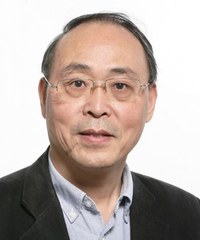
Prof. Xiang Zhang
University of Cambridge, UK
Prof. Xiang Zhang, Royal Society Industry Fellow at University of Cambridge, has over 34 years combined academia (17 years) and industrial (17 years) experience in materials science and biosensors science and technology. Prof. Zhang is Principal Consultant and Head of Medical Materials & Devices of Lucideon. Zhang’s industry experience was gained in leading an international healthcare company, where, as Principal Scientist and Principal Technologist, his work covered almost all aspects of min-medical devices (such as biosensors) from R&D and manufacturing support to failure analysis and QC. Zhang also worked as Director of a technology company, in the field of nano-conductive materials and diagnostic medical devices. In the last 3 years he has published three books “Inorganic Biomaterials” (2015), “Inorganic Controlled Release Technology” (2016) and “Science and Principles of Biodegradable and Bioresorbable Medical Polymers” (2017. As a materials scientist, he is passionate on “Science for Industry “and believes fundamental but applied sciences are the keys to solve industrial problems as well as develop good products that are much-needed by the society. Prof. Zhang undertook his PhD and postdoctoral research at Cranfield University where he studied materials physics and nano/micro-mechanics and fracture mechanics of polymeric hybrids (organic and inorganic). After spending a further four years on research for industrial applications, he was awarded an industrial fellowship at the University of Cambridge in 1995, where he carried out research on polymer ductile to brittle transition employing synchrotron X-ray (SAXS, WAXS) to study in situ deformation and fracture at nanometre scales, the results of which lead to completion of ductile to brittle transition theories in view of nano-mechanics and nano-fracture mechanics 1st time in the world.

Prof. Luc Avérous
University of Strasbourg, France
Pr. Luc Avérous is a Group (BioTeam)
Leader, Head of Polymer Research Department at ICPEES (UMR
CNRS 7515) - University of Strasbourg (France), Head of
Joint Research Lab (Mutaxio) and former Lab Director.
He started as Polymer Engineer (EAHP-Strasbourg). Then
in 1995, he obtained his PhD in Polymer Sci. & Eng. (Ecole
des Mines de Paris). After two post-doctoral positions (Ecole
Polytech. de Montreal-Canada,), he became A/Prof. at the
Packaging Eng. School (Reims) in 1997. Finally in 2003, he
became a Full Professor at ECPM (Strasbourg), where he
teaches biopolymers science, biomaterials, composites,
polymers characterization & processing.
During the last two decades, his major research
projects have dealt with biobased and/or biodegradable
polymers for environmental & biomedical applications. As a
leading international expert in these fields, he has
developed strong collaborations with several foreign labs
(Australia, Brazil, Canada, Spain,) and major companies
(Total, Soprema, Tereos, PSA,). He serves as a member of
research advisory boards for different companies. In France
or overseas, he is regularly invited to co-organize
Conferences, to chair Symposia, and to give plenary or
keynote lectures. He has co-edited 4 books (2 Wiley,
Elsevier & Springer). He is a member of several Editorial
Boards, and Guest Editor for scientific journals. He is a
referee for many scientific journals, books and
international projects.
